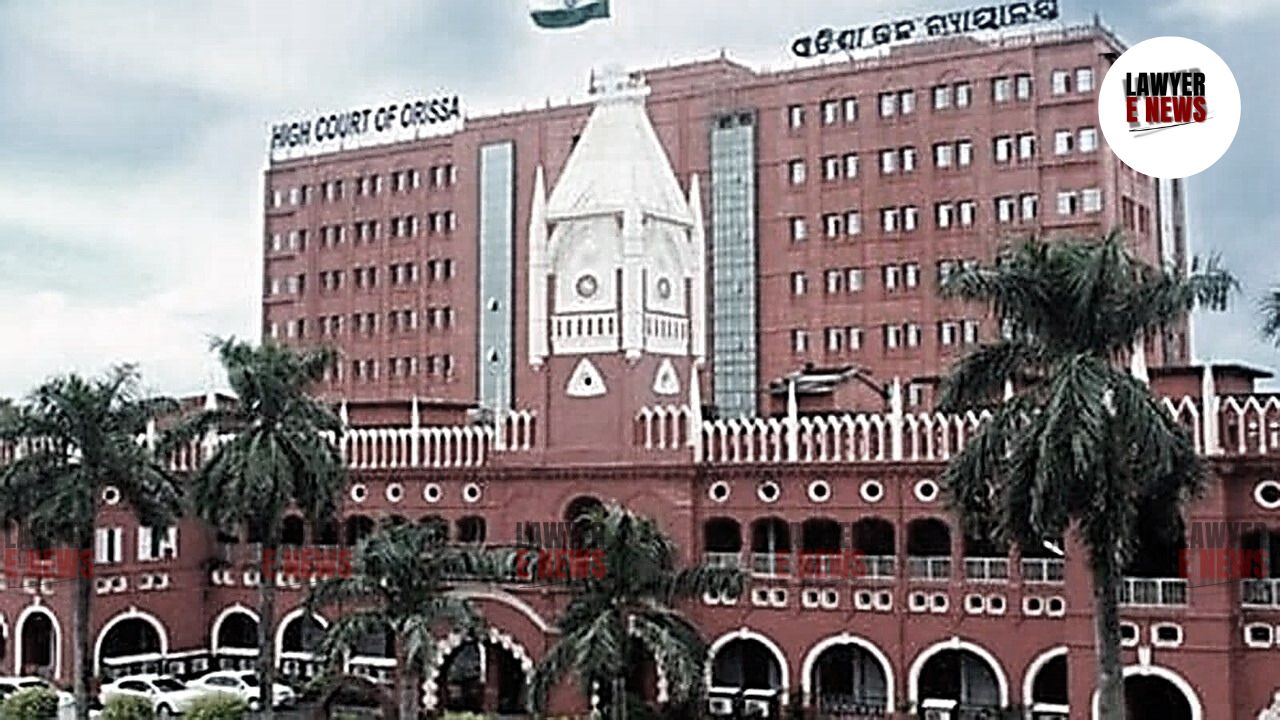-
by sayum
14 February 2026 2:22 PM



Orissa High Court dismissed a writ petition filed by Mahendra Prasad Nayak, challenging his disengagement as a Sikshya Sahayak (primary school teacher) after prolonged absence from duty. The ruling, delivered by Justice Sashikanta Mishra in W.P.(C) No. 32241 of 2023, upheld the termination ordered by the Collector, Rayagada, finding no procedural flaws or violations of natural justice.
Mahendra Prasad Nayak had been appointed as a Sikshya Sahayak on November 11, 2012, under a contractual engagement by the Collector-cum-CEO, Rayagada. Shortly after beginning his role, Nayak became ill and went on extended leave from July 3, 2013, to March 2, 2014, alleging medical issues. Despite informing the school administration of his health condition, his return to duty on April 23, 2014, was met with resistance. Although he was allowed to join, Nayak claimed he was denied access to the official attendance register, prompting him to sign a separate register maintained by the Village Education Committee.
Nayak's absence without formal leave approval led to his disengagement on March 10, 2021, effective retrospectively from July 3, 2013. Nayak challenged this decision on grounds of procedural lapse, arguing that he was entitled to a 30-day notice under the November 19, 2009, government resolution, which was allegedly not provided.
Unauthorized Absence and Procedural Compliance: Nayak argued that the Collector failed to follow due process, notably the requirement for a 30-day notice before terminating a Sikshya Sahayak for contract breaches.
Collector's Orders: Nayak's disengagement was based on findings that he failed to provide timely documentation for medical leave. Despite submitting a medical certificate, there was no evidence showing he submitted it before availing himself of the leave.
Petitioner’s Procedural Conduct: The High Court emphasized Nayak’s omission of material facts in his writ petition, notably the show cause notice from October 2015. Nayak only acknowledged this when it was mentioned in the opposing party's counter affidavit, undermining his credibility and, according to the court, indicating a lack of "clean hands."
Absence of Prior Leave Application: The court found no evidence that Nayak applied for leave or submitted a medical certificate in advance of his extended absence, deeming his time away unauthorized.
Separate Attendance Register: Nayak’s use of a separate attendance register maintained by the Village Education Committee was invalid, as the school authorities had not authorized this. Justice Mishra noted that such informal measures do not constitute proof of legitimate attendance.
Suppression of Facts: Justice Mishra criticized Nayak’s conduct in omitting the show cause notice issued to him. "A litigant is not entitled to any relief if he does not come to the Court with clean hands or is found to have suppressed material facts," the judge remarked, stressing that such omissions impair a petitioner’s credibility before the court.
Application of Natural Justice: The High Court found that principles of natural justice were upheld as Nayak was provided with a show cause opportunity, which he responded to. The decision to disengage him was based on these records and remained unchallenged on procedural grounds.
In dismissing the petition, Justice Mishra concluded that the order of disengagement by the Collector was legally sound, emphasizing that Nayak’s unauthorized absence warranted his disengagement. The court stated that there was "no infirmity much less any illegality in the impugned order," affirming the Collector’s decision.
This ruling reinforces strict adherence to contractual obligations and transparency in judicial proceedings, emphasizing that suppression of key facts or deviation from stipulated processes can be grounds for denying relief.
Decision Date: November 7, 2024
